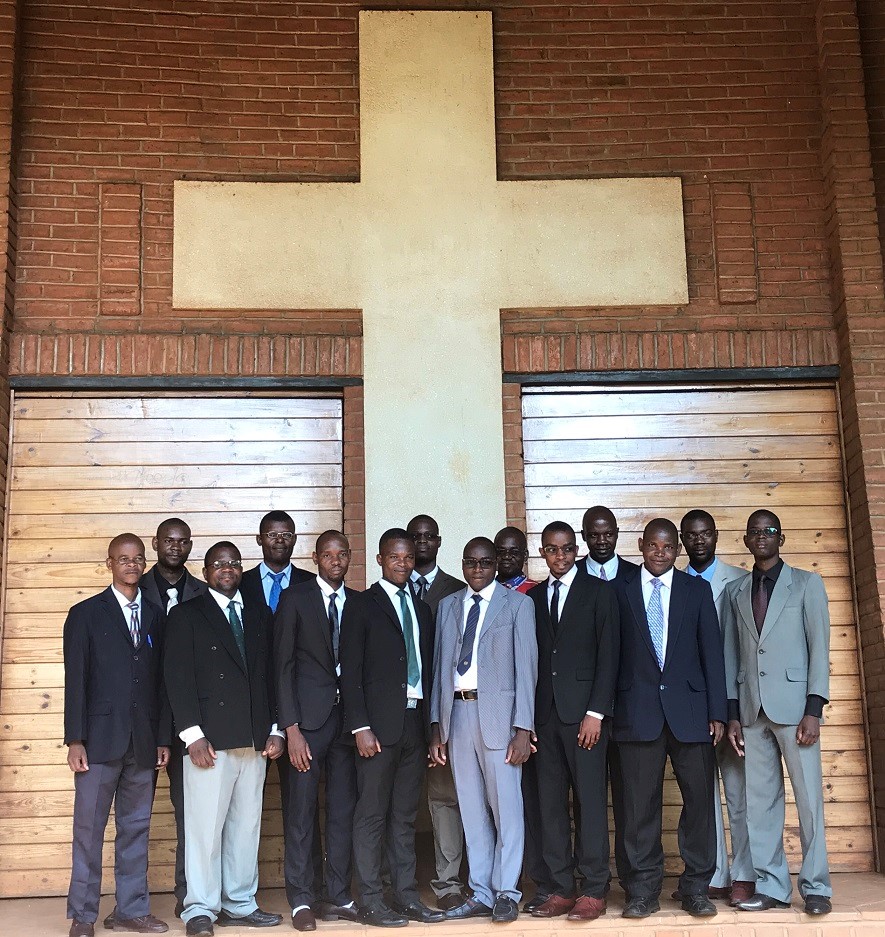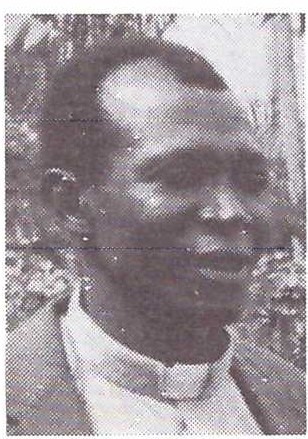Canceled!

There’s an unusual quiet on the campus.
The Lutheran Bible Institute in Lilongwe, Malawi is normally in session; there’s usually a beehive of activity that makes the campus hum:
Classes.
Homework.
Study hours.
Work detail.
Classroom learning & break out group discussions.
But now?
No power points presentations, no lectures nor recitations, no storytelling, no Professor jokes nor student laughter. No opening day devotions or communicative Greek dialogue.
No break-time chatting, checkers, or chess.
Student houses stand menacingly vacant.
The campus church building stands eerily quiet.
No one is kicking up dust on the football pitch.
No one tending to the maize in the fields.
No students or their families to be seen. Gone without a trace. It’s as if they all vanished. Disappeared.
Well, in a way they have. In fact, I might add, rather quickly.
Due to the world-wide Coronavirus pandemic, the Lutheran Bible Institute has also been affected. Just like every other school in Malawi. And most in the world.
On 20 March 2020 Malawian President Mutharika declared Malawi a State of Disaster and ordered that all schools be closed as of 23 March.
That mandate turned into a mad scramble for the faculty to quickly get the students back to their home villages. It wasn’t an easy doing. Especially for the Zambian students. It first meant countless hours in the Immigration office to sort out remaining issues with passports, student permits and for some, birth certificates for kids recently born in Malawi.
And to think…
This was the final year for the LBI students. The 3-year program was coming to a close June’s end. The 14 students and their families and the LBI Faculty had anticipated a joyful – and eventful – graduation service.
How things can change and change quickly! There just was no time for a special “cap and gown” service; there was no class speaker, no class song, no diplomas received, no gifts given.
It wasn’t that there were COVID-19 cases in Lilongwe. In fact, at that time, there were no officially confirmed cases even in all of Malawi! This comparatively tiny country stood with few others as having zero infected people.
So why cancel the classes if the virus wasn’t evident?
Because the fear was.
Maybe you’re seeing – or experiencing – something similar. Panic buying. Anxious thoughts. Worrisome nights and troublesome days. Some are struggling with lost jobs and new-found questions:
Do I wear a mask or not?
Quarantine or not?
Do I have it? Did I give it to someone else?
Do I get tested? Can I get tested?
The fear and the questions spread as quickly as the virus itself. I’m not telling you anything you don’t already know.
Price hikes, long queues, and empty shelves. And it’s not just schools that have been cancelled.
Flights? Cancelled.
Hotel bookings? Cancelled.
Long-awaited vacation? Cancelled.
Cruise? Rally? Convention? Even an election? Cancelled with a CAPTITAL C.
A red-letter disappointment.
But despite the cancelled classes and graduation service, this class will still proceed onto the Seminary in September 2020. Each of the 14 students have met the qualifications and the faculty recommends them!
And so there were still hopeful smiles on the campus. Before the 14 LBI students parted ways, with a hoe they parted the earth and made time to do one last class activity:
They planted a tree.

Wouldn’t you know it? With a lighthearted touch, they hung a sign on the tree. More than a sign, it was the name that they gave the tree; a name that you could probably guess considering these times:
Corona.
Did you know that Corona means “Crown”? The virus, presumably so named, because, in a way, it resembles one.
The Coronavirus has brought a lot of sickness and death to our world. But it looks like we are adjusting to the situation: masks, social distancing, hand washing, working from home, and studying at home.
What a golden opportunity we also have been given: to fix our eyes on our Lord and Savior Jesus Christ! Stop and pause this week. What a week it is!
Whom do we see?
- A Palm Sunday donkey-riding Servant King making triumphal entries, not just into cities like Jerusalem, but into hearts like ours.
- A Maundy Thursday Passover Lamb that offers, not just bread and wine, but Body and Blood.
- A Good Friday Center-Cross “Criminal” who, even as people taunted and mocked, still was breathing out forgiveness.
- A Devil Destroyer who went to hell to proclaim his victory!
- An Easter morning Death Defeater who came out of the tomb fully alive and victorious, guaranteeing our own resurrection and life. And victory!
- A Powerful Ruler sitting at the right hand of God controlling all things.
And by faith, what Paul the Apostle knows is also what we know: “in ALL those things (even in a State of Disaster) God is working for the good of those who love Him, who have been called according to His purpose.” (Romans 8:28)
THAT you know. What you maybe didn’t know (but now you will!) was where on the campus the LBI students planted the tree. They dug the hole and placed the tree right next to the campus church where they worshipped most every morning and every evening.
The place where law and the gospel was preached. The house of God in which the name of Jesus was held high. The location where forgiveness was proclaimed and where the sacraments were administered. Where they learned to preach devotions and to preside over the liturgy.
Perhaps what you also didn’t know (but now you will!) was the name of the church: CROWN of LIFE.
What a paradox!
A tree of death. A Crown of Life. Or is it a Crown of Death and a Tree of Life?
As you’re thinking about that, think about this: There is another tree that comes with the same paradox. The tree on Golgotha.
A tree of life or a tree of death? A crown of life or a crown of death?
Actually, both. It’s the place where law and gospel meet. The epicenter of God’s full wrath and full love. A converging torrent of anger over sin and love for the sinner. So, when God gives you the opportunities this Holy Week and beyond,
Sing your Hosannas!
Feast at the Lord’s table!
Answer the hymn writer’s question: “Were you there when they crucified my Lord?” (CW #119)
Remind yourself that Satan has been defeated.
Peer into the tomb and find it for what it is: empty.
And the next time your sins trouble you and you wonder if God has forgiven you, remember that the written code was nailed to the cross. (Colossians 2:14)
And the debt you owe because of your sins?
Debt cancelled
Missionary John Holtz lives in Malawi
Please pray for those working in fields that are ripe for harvest. Share their story, engage with future news and receive updates. Learn more about our mission fields in Africa and how the Holy Spirit is working faith in people’s hearts at https://wels.net/serving-others/missions/africa





